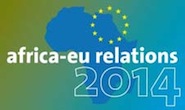In time for next week’s Africa-EU Summit in Tripoli, the Africa-EU Platform for Dialogue on Governance and Human Rights was launched on 12 November in Brussels. ECDPM and its partner, the Dakar-based African Governance Institute (AGI) were involved as facilitators in this process. This Platform is the culmination of the extensive work over the last two years that has taken place within the Joint Africa-EU Strategy (JAES), which was adopted at the first Africa-EU Summit in Lisbon in December 2007, and specifically it’s Partnership on Democratic Governance and Human Rights. The Platform provides an open, ...
Chatham House hosted a conference entitled “Ensuring Peace and Security in Africa: Implementing the New Africa-EU Partnership” on 27-28 October. The conference discussed the motivations and objectives of cooperation between the EU and Africa on peace and security, took stock of progress made over the past couple of years and analysed and drew lessons from case studies. ECDPM’s Eleonora Koeb gave a presentation to the meeting highlighting some successes and progress made by the African Union in the areas of conflict prevention, mediation and development of an African Peace and Security Architecture (APSA). Stressing that ...
The Joint Africa-EU Strategy (JAES), signed in December 2007, was designed as a ‘people-centred partnership’ that aims at providing ‘a permanent platform for information, participation and mobilisation of a broad spectrum of civil society actors in the EU, Africa and beyond’. It calls for the creation of an ‘appropriate and prominent place’ for non-state actors. Civil society in the European Union and in Africa have progressively organized themselves with the aim of allowing citizens’ participation in the dialogue between the two continents. The first Africa–EU Civil Society Intercontinental Dialogue Forum was held in Cairo on ...
Ahead of the Africa-EU Summit that will be held in Tripoli on 29-30 November, this high-level event organized by EARN, ECDPM and okra eXpress in Brussels on 16 November provided a timely opportunity to discuss the Joint Africa-EU Strategy’s (JAES) main achievements as well as the difficulties encountered in strengthening the political partnership and in enhancing cooperation between the two continents. It also gathered views of African and European officials and other actors on what they see as the main priorities and expectations for the summit and the main challenges to the future of their ...
ECDPM’s Jeske van Seters gave a presentation on “Aid Effectiveness from an EU Perspective” on 15 November to the Finnish Development Policy Committee, an advisory body appointed by the Finnish Government to inform, monitor and evaluate Finnish development policy. The presentation outlines global trends and the evolving development scene and the role of EU aid effectiveness within this. It also sets out the opportunities and risks ahead for EU aid effectiveness, in particular within the new post-Lisbon treaty framework. This session, and other deliberations of the Committee, are to feed into their annual review of ...
The OECD/DAC, in cooperation with the Learning Network on Capacity Development (LenCD) and the Southern Initiative Capacity Development Alliance, has launched a process to take stock of progress made by donors and partner countries in implementing the joint commitments for capacity development arising from the Paris Declaration and the Accra Agenda for Action on Aid Effectiveness. Three of five “perspectives notes” have been published for this – on sector capacity development; capacity development in fragile situations; and on the enabling environment for capacity development (two more notes are forthcoming on technical co-operation and capacity development; ...
The new EU rules or origin (see also here)- used to determine whether imported goods really originate in countries covered by the EU’s preferential trade arrangements, thereby making them eligible for a preferential customs tariff - replace existing rules long criticized for their over-complexity and take into account the specificities of different sectors of production and particular processing requirements of developing countries trading with the EU under its Generalised System of Preferences (which includes the “Everything But Arms” regime which grants duty- and quota-free access to all goods except arms originating in least developed countries ...
EU High Representative for Foreign Policy and European Commission Vice-President, Catherine Ashton, informed Members of the European Parliament’s Development Committee meeting on 8 November that she is committed to ensuring that development policy “remains at the heart of external policy” as set out in the Lisbon Treaty. The current focus, she said, is on ensuring that an operational framework is established that allows the European External Action Service (EEAS) and the European Commission’s new EuropeAid Development and Co-operation Directorate-General (DevCo) to “join up the jigsaw puzzle of different aspects of EU activity” – the EU ...
November 15, 2010
Posted: 15:03 PM CEST
by ECDPM Editorial Team
in Food security
Africa has a real opportunity to achieve food and nutrition security through agricultural development and Europe can play a unique and significant role in helping African nations attain this goal according to the Montpellier Panel Report: Africa and Europe-Partnerships for Agricultural Development. Written by a ten-member panel of development experts from Europe and Africa, the report provides an overview of the state of European investment in African agriculture, highlights African priorities in agriculture and nutrition, and makes recommendations for ensuring global food price stability and strengthening partnerships between Europe and Africa. It suggests that increasing ...
ECDPM and partners organized on 4 October an informal meeting of like minded-donors to further the dialogue on how to improve cross-sectoral cooperation within as well as across donor agencies on Aid for Trade (AfT) and Agriculture and Rural Development (ARD). A consensus seemed to emerge that donors should play a complementary role and be guided by partner countries in what actions they should take to make trade and agriculture policies more coherent and ARD-AfT better linked and more effective. In general there is a feeling that trade should be seen more as a policy ...

















